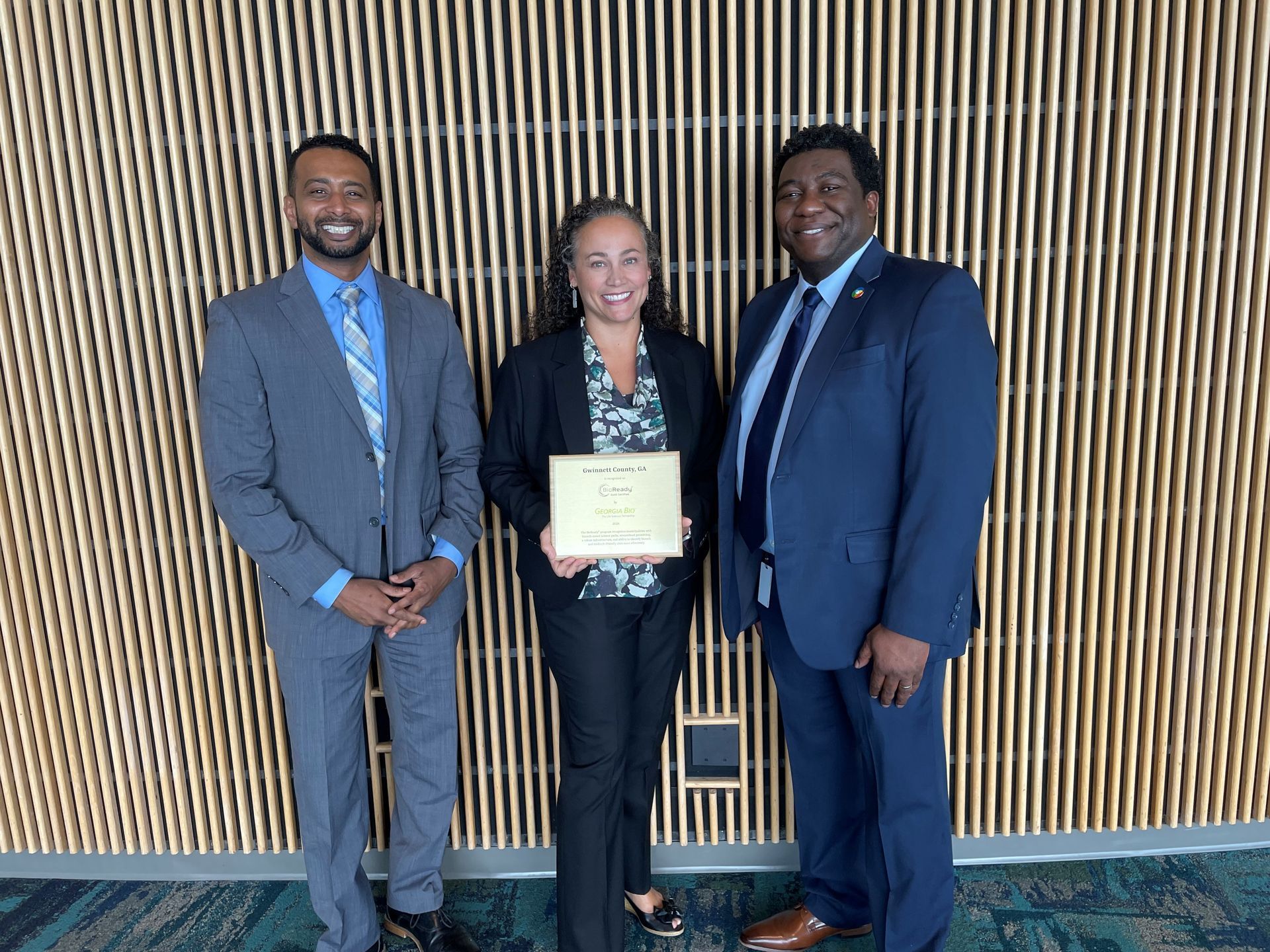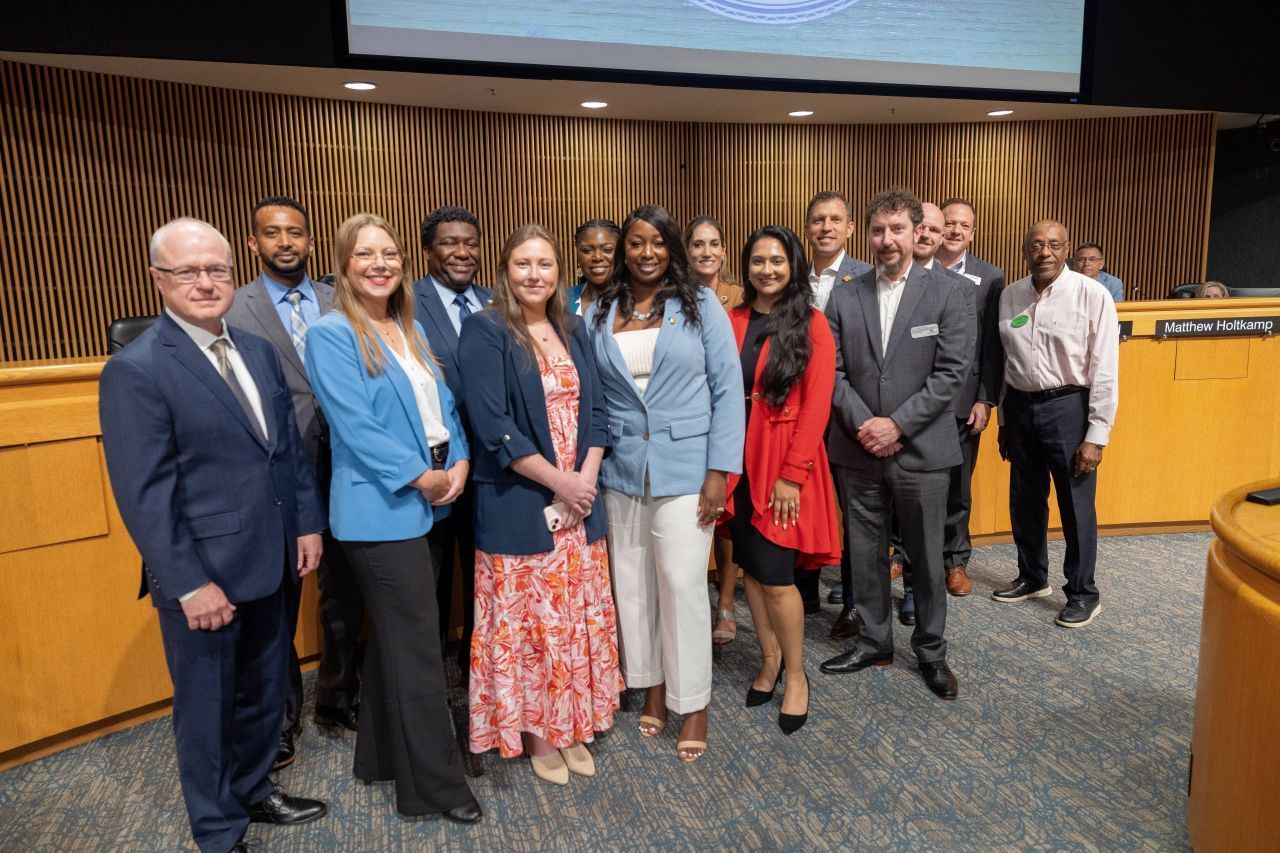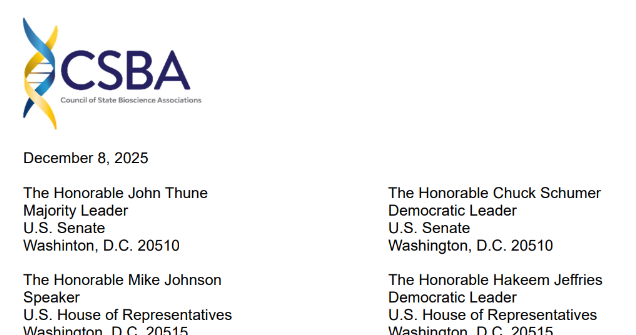Georgia Bio Announces Gwinnett County as Newest BioReady® Community
July 19, 2024, Atlanta, GA – Gwinnett County was officially recognized by Georgia Bio, the state’s leading life sciences membership organization, for achieving Gold-Tier BioReady® Community status during the Board of Commissioners meeting this week. To receive this distinction, communities must meet certain criteria and be able to support the growing biotech industry.
Gwinnett County Chairwoman Nicole Love Hendrickson shared, “This prestigious recognition is a testament to Gwinnett County's dedication to supporting the growing biotech sector. Our forward-thinking zoning policies and supportive infrastructure make us an ideal destination for companies looking to establish or expand their biotechnology operations. By fostering a welcoming environment for life sciences companies, we continue to position Gwinnett as a hub for cutting-edge research and development.”
“Gwinnett County is the first county in metro Atlanta to qualify and receive BioReady® gold status,” said Maria Thacker-Goethe, President and CEO of Georgia Bio. “The county has clearly demonstrated a willingness to continue to foster the biotech sector with infrastructure investments like The Water Tower and Rowen Foundation, which in addition to a strong and diverse workforce, help make them a desirable choice for industry and a benefit to Georgia’s overall economy.”
The BioReady® rating system rates communities in three tiers from Bronze to Silver to Gold. Through these BioReady® ratings, Georgia Bio seeks to provide cities and towns a platform to effectively tell their stories to the biotechnology industry, ultimately helping real estate developers and biotechnology companies find the most favorable destinations to locate.
As the state’s largest and most influential life sciences advocacy and business leadership organization, Georgia Bio works to improve access to innovative technologies and grow Georgia’s life sciences economy. Georgia Bio launched the BioReady® Community program in Georgia with the support from the non-profit’s partners at MassBio, a global life sciences and healthcare organization dedicated to advancing Massachusetts’ position in the life sciences. With a goal of helping local communities connect with leading life sciences industry representatives, Georgia Bio replicated the MassBio rating system program to determine a municipality’s readiness to host biotechnology facilities based on the community’s zoning practices and infrastructure capacity.
Learn more on the Georgia Bio’s BioReady Communities website.
About Georgia Bio
Georgia Bio (GaBio) is the state’s most impactful life sciences membership organization, advocating for the sector and its diverse innovation pipeline. For more than 30 years, GaBio has served its members by supporting companies of all sizes, from early-stage innovators and startups to established industry leaders in the fields of biotechnology, pharmaceuticals, and medical technology. GaBio also works closely with universities, academic and research institutions, the investment community, and other critical partners that promote this vibrant sector. GaBio works to shape public policy, improve access to breakthrough technologies, educate lawmakers, provide member programs, strengthens the workforce pipeline, and advance equity within our ecosystem by championing innovative solutions for some of the most pressing challenges of our times. For more information, visit www.gabio.org.
Contact
Melissa Carter
Georgia Bio


Gold-Tier BioReady® Community status was presented during the Gwinnett County Board of Commissioners Meeting July 16, 2024.




